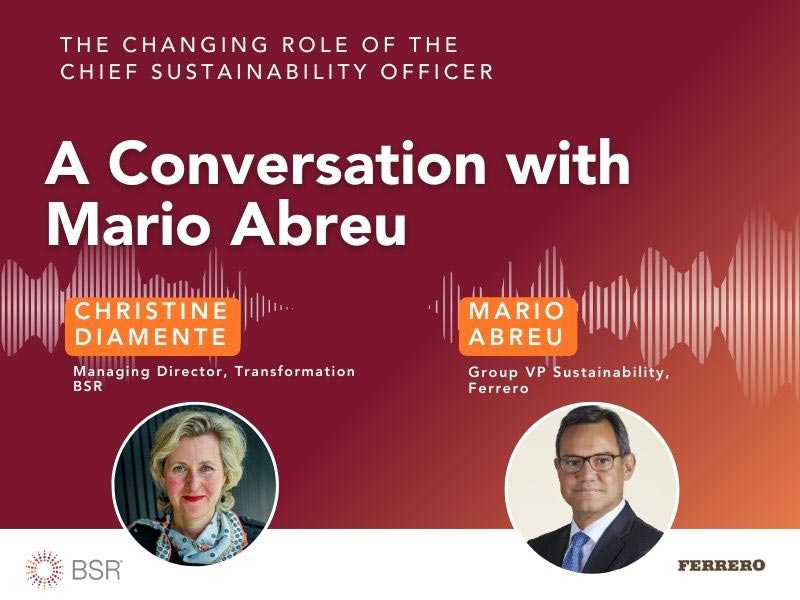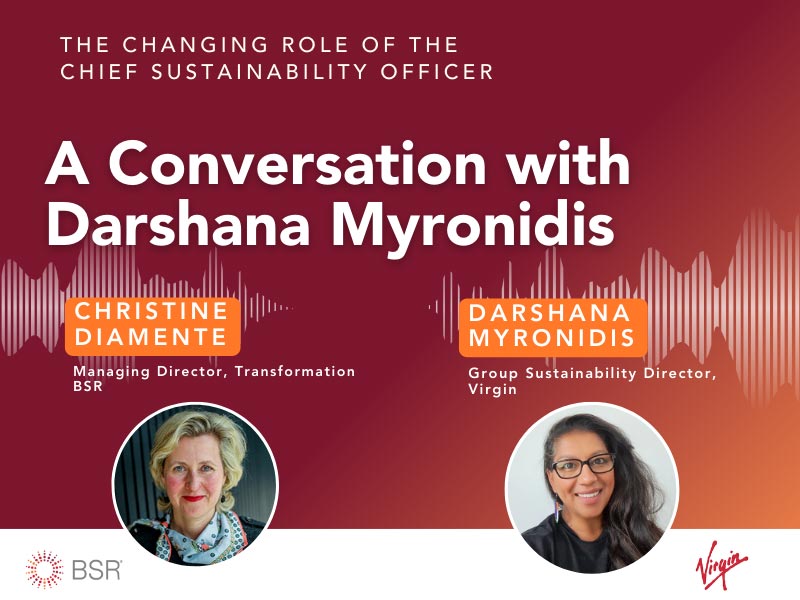
Photo credit: Philip Kromer, flickr.
Authors
-
Katie Morris
Former Manager, Communications and Marketing, BSR
Healthcare and social media platforms, dogs and tech wearables, environmental conservation and virtual reality—to many, these topics seem dramatically divergent. But while attending this year’s South by Southwest (SXSW) Interactive conference in Austin, Texas, I found that they are anything but.
SXSW brings together global professionals from across industries to network and explore diverse topics in the worlds of tech, entertainment, and culture. Tracks ranged from brands and marketing to health, and from web development and coding to government. And while these tracks attracted participants working in completely different arenas, one underlying theme ran throughout the event: convergence.
As Kevin Clark of the Center for Digital Media Innovation and Diversity at George Mason University put forth in a session on addressing gender norms in entertainment media, the world of technology and media is an ecosystem; it doesn’t operate in isolation. More and more, companies, particularly in the technology sector, are partnering with other companies, foundations, governments, and nonprofits to collaborate on global issues and use emerging technologies to drive social and environmental progress. In our increasingly connected world, businesses and others are finding that they, too, must find ways to come together.
Under the overarching theme of convergence, here are four trends from SXSW for companies in all sectors to keep an eye on.
1. The emergence of augmented and virtual reality (AR/VR)
These terms were everywhere, and you couldn’t walk more than a city block without an opportunity to play around with the latest gadgets. While AR and VR technologies are still nascent, many conversations revolved around the question of how they will be used—including as a tool for generating empathy and driving and scaling societal change. I put on VR goggles to go “under the canopy” in the Amazon rainforest as part of an effort led by Conservation International with support from HP Inc., Jaunt, Johnson & Johnson, the MacArthur Foundation, and the Tiffany & Co. Foundation to raise awareness of the region and its value to human well-being. In a session on VR as a tool for accelerating global policy change, I also learned about Merck For Mothers’ work using VR to immerse policymakers in maternal health issues in their countries and remind government officials of the healthcare for which they are responsible.
2. Connections between technology and journalism, activism, and politics
Following 2016’s Brexit vote and U.S. presidential election, much of SXSW was focused on what the current political climate means for big data tracking, communications and journalism, and the relationship between government and technology. As U.S. Senator Cory Booker stated in the Interactive opening keynote, “If we are silent in the face of injustice, we are complicit in that injustice.” Booker was joined on stage by Google’s Senior Counsel on Civil and Human Rights Malika Saada Sar, and they discussed the role technology played and will continue to play in politics and how it can be an essential tool for “re-stitching our fractured society.” Other sessions also focused on fake news and “alternative facts”—one speaker offered potential solutions for social media platforms to fix algorithms so that they eliminate echo chambers and show users more diverse views, with the aim of reducing political polarization. She also suggested that, as artificial intelligence (AI) expands, those companies will have more responsibility for their influence on users.
3. Partnerships between tech and other sectors
Innovation and disruption reign at SXSW, and this year emphasized how tech intersects with other sectors, particularly health and medicine. For example, David Karp, the CEO of Tumblr, is leading an initiative to create tech community support for Planned Parenthood—using #TechStandsWithPP as the rallying hashtag to generate support for access to healthcare in the United States. In his keynote, former U.S. Vice President Joe Biden celebrated the technology sector for its dedication to cancer research. He urged innovators to help with electronic data-sharing and to connect and empower cancer patients. Other notable discussions included lessons that healthcare can borrow from tech, including using rideshare apps to connect patients with medical services, using VR to alleviate pain after surgery, and even how technology can enhance veterinary medicine and the relationship between humans and dogs.
4. Machine learning and AI
Nearly every day, the SXSW program featured multiple sessions on the future of AI and its societal implications. While AI and automation will benefit society in many ways, they are also already negatively affecting jobs and changing the nature of work. With ubiquity of AI on the horizon, conversations throughout the week focused on everything from the ethical use of AI therapists to chat bots and other AI innovations in marketing to governance, policy, and transparency issues.
Innovation is everywhere, and SXSW showcased how previously separate worlds are converging to connect people to information and services, increase empathy for global societal issues, and affect policy change.
And now, thanks to the countless innovations exhibited at SXSW, I’m also one step closer to finally being able to “speak dog.”
Topics
Let’s talk about how BSR can help you to transform your business and achieve your sustainability goals.







